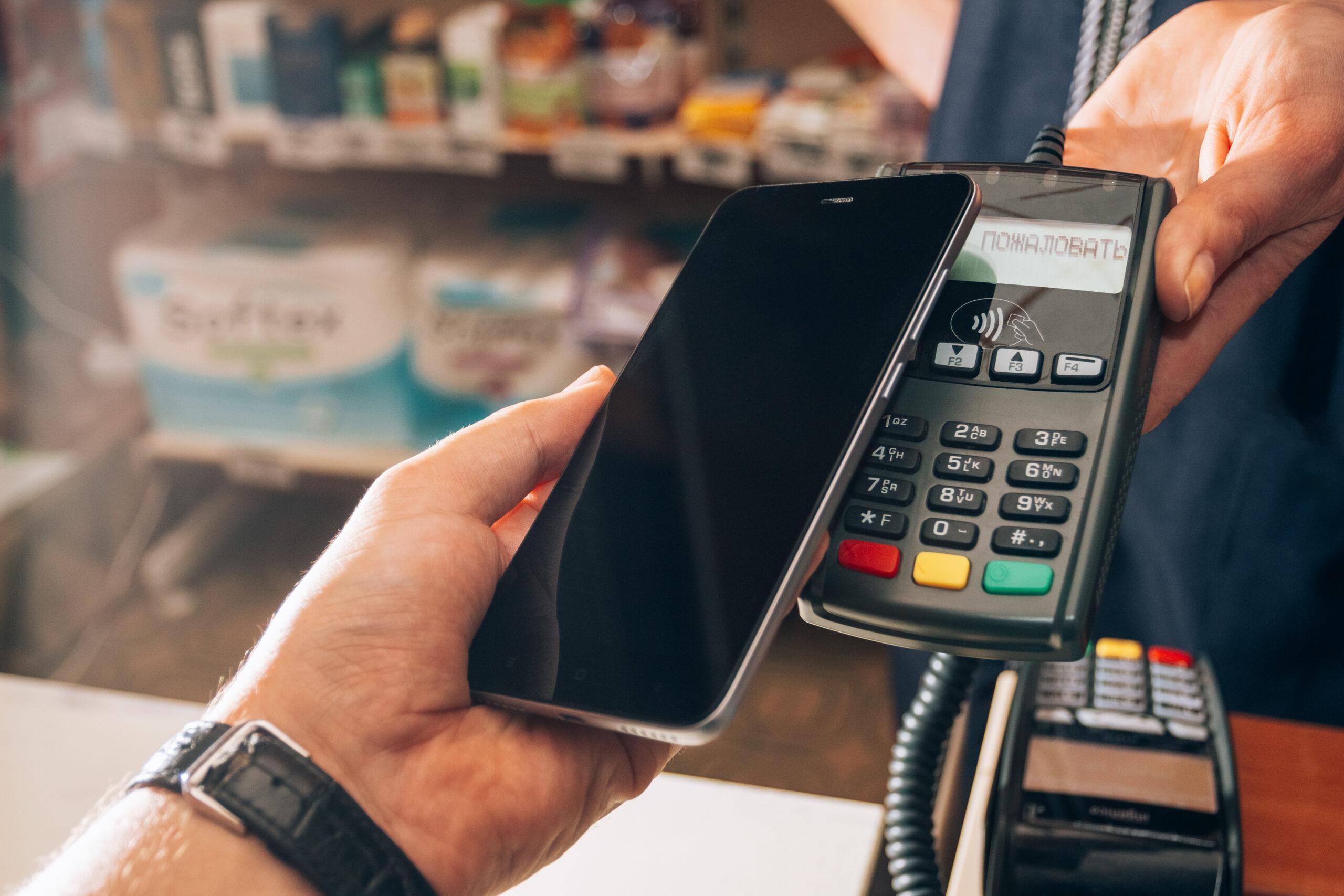MENU
Starting a Business
- Best Small Business Loans
- Best Business Internet Service
- Best Online Payroll Service
- Best Business Phone Systems
Our Top Picks
- OnPay Payroll Review
- ADP Payroll Review
- Ooma Office Review
- RingCentral Review
Our In-Depth Reviews
Finance
- Best Accounting Software
- Best Merchant Services Providers
- Best Credit Card Processors
- Best Mobile Credit Card Processors
Our Top Picks
- Clover Review
- Merchant One Review
- QuickBooks Online Review
- Xero Accounting Review
Our In-Depth Reviews
- Accounting
- Finances
- Financial Solutions
- Funding
Explore More
Human Resources
- Best Human Resources Outsourcing Services
- Best Time and Attendance Software
- Best PEO Services
- Best Business Employee Retirement Plans
Our Top Picks
- Bambee Review
- Rippling HR Software Review
- TriNet Review
- Gusto Payroll Review
Our In-Depth Reviews
- Employees
- HR Solutions
- Hiring
- Managing
Explore More
Marketing and Sales
- Best Text Message Marketing Services
- Best CRM Software
- Best Email Marketing Services
- Best Website Builders
Our Top Picks
- Textedly Review
- Salesforce Review
- EZ Texting Review
- Textline Review
Our In-Depth Reviews
Technology
- Best GPS Fleet Management Software
- Best POS Systems
- Best Employee Monitoring Software
- Best Document Management Software
Our Top Picks
- Verizon Connect Fleet GPS Review
- Zoom Review
- Samsara Review
- Zoho CRM Review
Our In-Depth Reviews
Business Basics
- 4 Simple Steps to Valuing Your Small Business
- How to Write a Business Growth Plan
- 12 Business Skills You Need to Master
- How to Start a One-Person Business
Our Top Picks
Table of Contents
Most people own mobile devices and are familiar and comfortable with texting. But texts have gone beyond personal communication. Today, many consumers have opted in to receiving texts from companies and organizations they do business with. Businesses use texts to alert customers to sales, send promotional links, confirm orders and deliveries, and much more.
We’ll explore business text message marketing and how organizations can utilize this powerful and affordable customer communication tool.
What is business text messaging?
Business text messaging (or business texting) involves sending and receiving text messages from a business phone number to prospects and customers. Business texting is a form of communication and marketing businesses can use to connect with their target audience.
Businesses use text message marketing to increase sales, streamline communication and reach customers where they are. Examples of business text messaging include the following:
- Sending customers promotional offers
- Updating the status of orders and services
- Responding to queries about business times and locations
Business text messaging is divided into MMS and SMS messaging:
- SMS (short message service) marketing: SMS business texting supports alphanumeric messages up to 160 characters. Most telephone, internet and mobile-ready devices support SMS messaging.
- MMS (multimedia message service): MMS supports text messages with over 160 characters as well as multimedia (images and video). It can include up to 500KB of data and audio or video files.
SMS marketing and mobile marketing are different. SMS marketing refers to sending marketing texts, while mobile marketing uses websites, social media, mobile apps and more to send mobile ads
How do businesses use text messaging services?
Businesses use text messaging in the following ways:
1. Use business texting for appointment reminders and scheduling.
Like email automation, automated text messages are an excellent way to help customers schedule appointments and receive timely reminders. Scheduling and reminder texts are convenient for businesses and customers while helping lower cancellation rates. They also reduce the time employees spend making phone calls to customers, helping improve overall business efficiency.
2. Use business texting for payments and billing reminders.
Many customers pay their bills online but might forget to pay by the deadline. Sending an attention-grabbing text notice that their bill is coming due will help customers make timely payments.
You can also accept mobile payments via SMS by sending customers a link to a payment page; this is called text-to-pay. Text-to-pay benefits businesses and customers: The business gets the money it’s owed, and customers won’t incur unnecessary interest charges and fines.
Use text-to-pay to simplify the payment process, improve your collections process and reduce nonpaying customers.
3. Use business texting for order confirmation and delivery updates.
If you have an online store, you know that customers expect order confirmations and delivery updates. Many online businesses have incorporated text messaging into their inventory systems to send customers order updates. Customers like knowing their order status in real time.
4. Use business texting for birthday and anniversary messages.
Sending customers birthday and anniversary greetings is an effective way to build brand affinity and customer loyalty. People usually like being acknowledged on these occasions, so reaching out to customers will create goodwill. Your business message will also stand out from other birthday and anniversary messages.
5. Use business texting for event reminders, updates and promotions.
Send text messages to inform prospects and customers of events and promotions before they occur. You can provide updates and schedule changes before the event and send out text messages after the event to gather customer feedback.
You can also get creative with text messages during an event. For example, request selfies, conduct a scavenger hunt or ask trivia questions for prizes.
According to a SimpleTexting survey, 70 percent of consumers opted to receive texts from businesses in 2022, making business texting an integral part of a great customer experience.
6. Use business texting to accept one-off orders.
Many restaurants use smartphone apps to support online ordering, but they can be too expensive for smaller restaurants and businesses. Use business texting to take one-off orders, promote new offerings and limited-time specials, announce company news, and collect customer feedback.
7. Use business texting to enhance customer service.
Many businesses use text messaging for customer service. Business texting can enhance your customer service strategy, as many customers prefer texting over speaking with customer service reps by phone.
Additionally, many business texting services let you create browser portals that provide customer support texting from your business website.
8. Use business texting to conduct customer preference polls.
Learn what’s important to customers to serve their needs better. Use business texting to send text-to-vote SMS polls to gather survey data on customer insights. You can then personalize your offerings according to the preferences of various audience segments. For example, you can run different promotions for customers with and without children.
According to Text Request, 68 percent of people read every text they receive – even spam.
9. Use business texting to facilitate contests.
Contests are an effective way to increase customer loyalty and attract new customers. Use business texting to ask customers to enter a code to participate in sweepstakes, or choose random numbers to award prizes during special days and promotions. Different jurisdictions have specific laws and regulations about contests, so consult with legal counsel to ensure compliance before initiating a contest.
10. Use business texting for coupon and discount distribution.
Coupons drive customer engagement, and text messaging is an effective way to distribute coupons and announce discounts and specials to customers. Texted coupons can encourage more customers to visit your store or place orders on your website.
With texted coupons, customers don’t have to worry about lost or expired paper coupons. You can also promote flash sales by text message to create greater urgency for your products or services.
11. Use business texting to gather referrals.
Word-of-mouth recommendations are an effective way to grow your business. The best sources of referrals are satisfied customers. Send text messages to your best customers, asking them to refer their friends to your business. Add discounts and other rewards to incentivize customers to help increase referrals.
12. Use business texting to send inspirational and motivational messages.
Inspirational and motivational text messages can help your business stay top of mind with your customers and increase engagement. The types of messages you send will depend on your business. For example, if you operate a gym or other health-oriented business, you can send health-focused text messages in the morning to help customers start their day on a positive note.
Using text message marketing best practices is crucial. For example, always get permission to send texts, make unsubscribing easy, and keep messages concise and interesting.
What are the benefits of business texting?
Business texting offers several significant benefits over other types of business communications.
- Business texting reaches customers wherever they are. Many people carry their smartphones and mobile devices everywhere and use them frequently. Business texting helps you reach your customers anywhere, anytime.
- Business texting helps you interact one-on-one. Business texting lets you engage in two-way communication with your customers. Customers can interact with your business, and you can respond to their messages directly. You can also reach out to specific customers to address unique needs.
- Business texting lets you communicate at scale. Business texting lets you send mass text messages to reach large customer groups simultaneously. You can send business texts to everyone on your mailing list or specific groups of customers.
- Business texting provides instant responses. Business texting is the quickest way to communicate with customers and get more immediate responses. Customers are more likely to read and respond to a text than a phone call, and to respond more quickly to text than email.
- Business texting doesn’t require special software. If your customers have a smartphone or other mobile device, you can interact and communicate with them easily. By sending a text message to a given number, your customers can opt in to your text list and receive messages, allowing you to communicate with them anytime. They don’t even need an internet connection.
How does consent work with business texting?
Text message laws regarding consent differ slightly in the U.S. and Canada.
- S. text message consent regulations. In the United States, according to the Telephone Consumer Protection Act, your company requires the customer’s express (i.e., written) permission to send text messages to their phones and mobile devices. Written consent can involve signing a physical document or using a digital signature. Even if your company has permission to contact a customer by email or phone, you must get their express permission to contact them by text messaging.
- Canada text message consent regulations. According to Canada’s anti-spam legislation (CASL), consent may be either express or implied. If a customer does business with your company, they provide implied consent to contact them for the next two years. Customers can also provide express written consent to contact them by text message. Your text messages must clearly identify the sender and provide an opt-out option.
What are the top business text message services?
The best text message marketing services are affordable, easy to use and integrate with the rest of your marketing programs. Here are a few to consider:
- EZTexting: EZTexting has such an intuitive interface that even nontechnical employees can easily use the service. The system prompts users about what to do and asks relevant questions. The company also has industry-specific content that can help businesses decide on text types to send. The platform also enables MMS so you can send pictures, GIFs, audio and video for increased engagement. Read our full review of EZTexting to learn more.
- Textedly: Textedly is our choice as the best text message service for businesses with simple texting needs. It has the lowest price per text of any full-featured texting platform, starting at just two cents per text on its lowest plan. One nice feature is that you can have real-time text conversations with customers, which can be helpful for customer service questions and appointment rescheduling. The platform includes 65 text templates, although personalization and other features cost extra. It’s also one of the few platforms that lets you text your customers directly from your Instagram business account. For more information, read our in-depth Textedly review.
- Podium: While Podium is the most expensive text message platform we reviewed, with plans starting at $289 per month, it offers a ton of value for local businesses. In addition to bulk texting, it also integrates with Google and local search sites for impactful results. You can text customers to ask them to leave a review. You can also respond to online reviews and invite the reviewer to subscribe to your list, increasing engagement. Podium also provides businesses with a bevy of list-building tools, from keywords to QR codes. Learn more by reading our full Podium review.
- SimpleTexting: SimpleTexting lets you easily segment your list to send targeted messages that will resonate with customers. It has built-in integrations with many of the best CRM platforms and top email marketing solutions. If you buy the top-tier plan, SimpleTexting will integrate with whatever software you have at no cost. You can have two-way conversations with customers and capture more information about subscribers for analysis or additional targeting. Check out our complete SimpleTexting review for additional details.
Jennifer Dublino contributed to this article.












